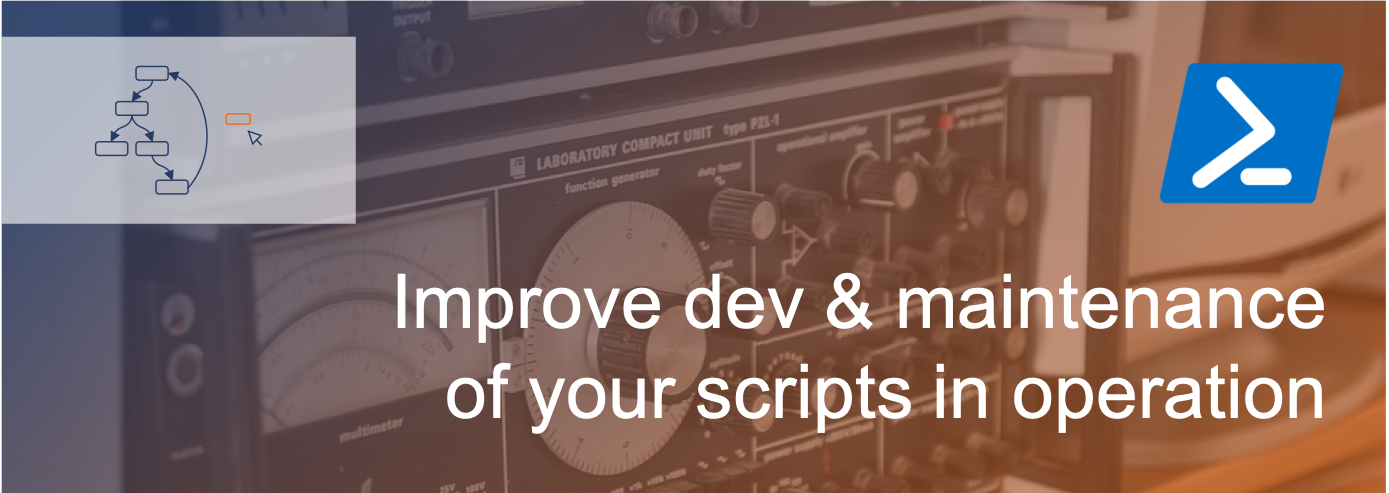Powershell: Improve dev & maintenance of your scripts in operation
Industrialize scripts at scale with 6 key features
4 min
Feb 25, 2019 from Activeeon
Enterprises of every size have invested in scripts to automate processes every day with Powershell (or any other script language). The IT department still remains with regular challenges on the execution of those various tasks.
- How do we test the success of an execution?
- Did everything run correctly today?
- Where are those scripted stored, maintained, versioned?
- When is the next execution planned?
- How to build more advanced workflows, scripts or applications based on existing ones?
Integrating a powershell script within an automation solution enables developers to embrace standard and embedded features without having to write any additional line of code.
This short article presents a few features to look for in automation solutions.
Features

Manage errors at scale
The biggest IT concerns with automation raise when the number of scripts and hosts scales. How would you get notified of an error? How do you get notified of new scripts to monitor? What happens in case of errors? It is quite common to see that the business person who wrote the script is not the same that needs to maintain its state in operation. The concerns are not the same for those two individuals.
With an error management system integrated in an automation solution, each user benefits from advanced features to control any failed execution. You can even set alerts to email an operator when the failure occurs.
Operators have then the ability to read the logs from a central place, to fix issues remotely and redeploy unsuccessful tasks. Maintenance is completed in minutes and IT operations control execution.
Scale your scripts
A script by itself is quite limited. However, the ability to share files and variables could be complex without the appropriate tools especially in cross-network environments.
An automation solution would give those scripts the ability to propagate variables to dependent tasks even if those tasks need to run on different hosts and even if those are not written in a similar language. This is equally true for files that could be shared between task processes.
Plan regular executions
Every OS includes its own solution to setup recurring triggers for scripts. How do you then visualize all the future executions of the day from all those different machines? How do you take into consideration maintenance periods or bank holidays?
With a job planner, the solution would gather all the expected recurring executions into a single place. You would then be able to add maintenance periods or irregular executions through the calendar you’ve setup. This will give you more flexibility and will help you better match the reality of a business.
Finally, a centralized place enables the visualization of all future and past executions so that you have a better visibility on the expected resource required for your workloads.
Expand cross environments
With hybrid and multi-cloud strategies raising, scripts will need to be executed on a wider range of environments and machines. How would you then manage network complexities such as firewall, ssh tunnels, access rights, etc.?
Recent automation solutions have been built in parallel with the increasing complexity of these ecosystems. They have consequently integrated protocols and systems to overcome most network challenges. You would then be able to expand your infrastructure with confidence and knowing that the security requirements will be met.
Organize, Version, Control
Let’s dive into the difficulty to maintain those scripts. How much control should you set on these? Are they stored in multiple machines? How do you revert changes that had a negative impact?
With a full featured catalog, all the scripts can be stored and organized in a single place for every department or business application. You can then have an overview of all the specific operations that are run on a regular basis and you can version them for maximum control.
Integrate
Today’s businesses need to break silos to identify new opportunities. The ability to access all the scripts from Rest API enables applications and services to be built upon existing ones.
Through the catalog mentioned above, you would be able to query the content of a specific bucket to learn which workflows are available. These workflows can then be launched on demand from any higher up custom application.
How Activeeon can help?
Activeeon offers a workload automation solution that includes all of the requirements mentioned above. We consequently help companies scale and focus on what’s truly important to their core value. We will take care of the pipeline of execution so you can focus on developing disrupting technologies and solutions.
For more information about our Powershell integration, do not hesitate to check the documentation.